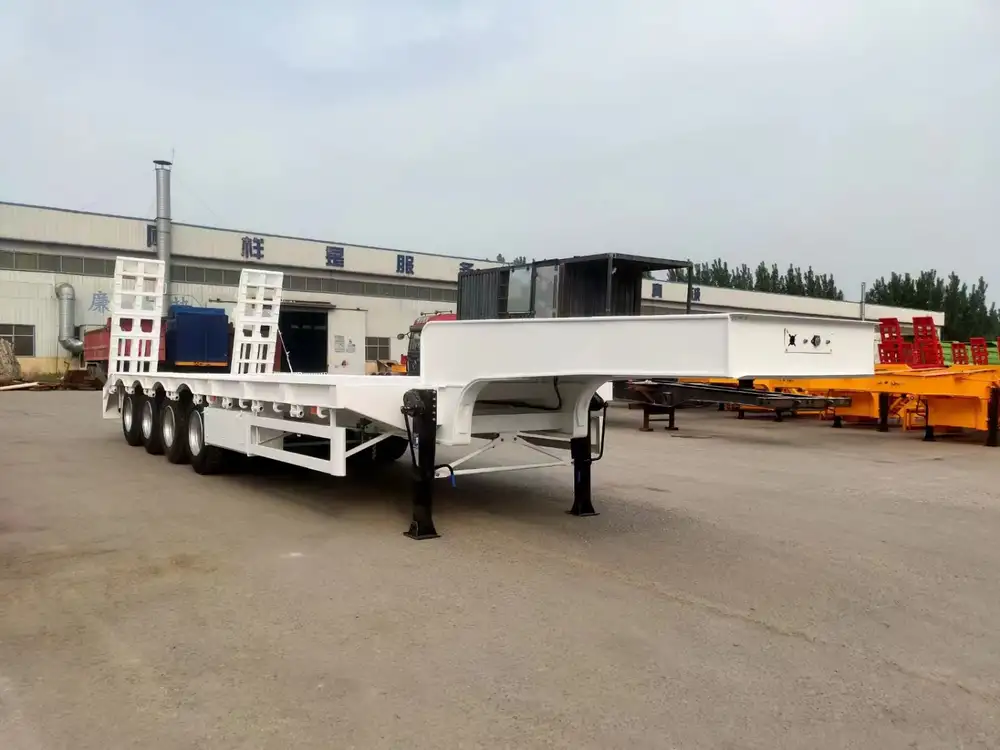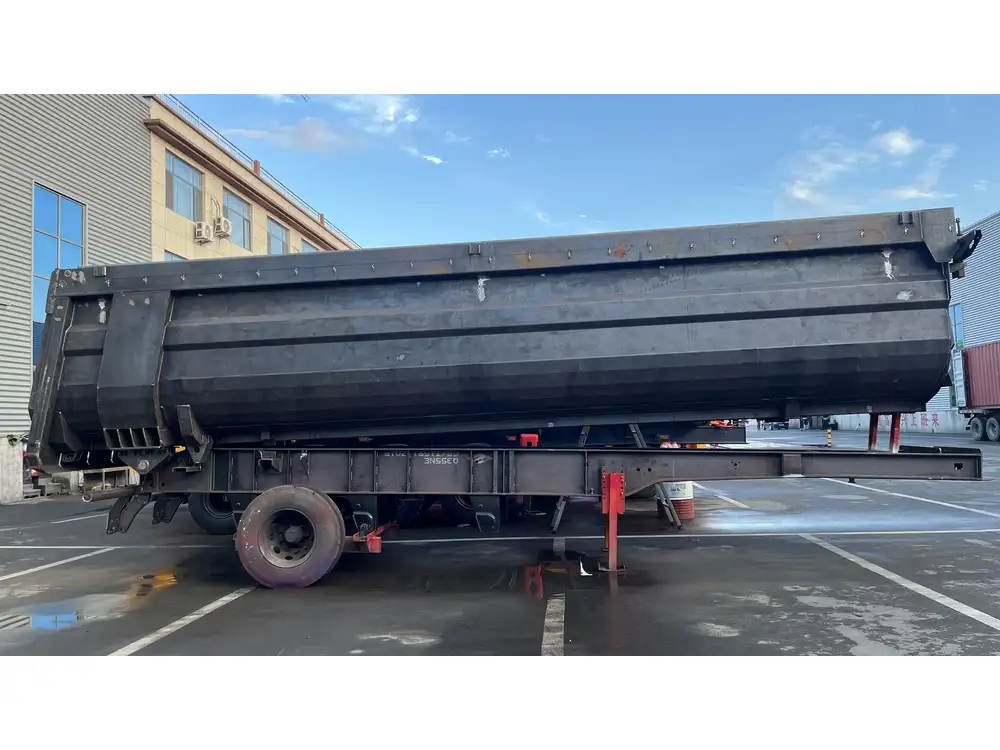Managing sewage waste from your semi-trailer is a critical aspect of operating in today’s transportation industry. Whether it’s the result of a long haul, a mobile living situation, or a temporary stop while on the road, understanding where and how to dispose of trailer sewage responsibly can streamline your operations and ensure compliance with environmental regulations. In this comprehensive guide, we will dissect different disposal methods, highlight key regulations, and present viable options for sewage dumping, ensuring your semi-trailer stays on the right side of the law while maintaining efficient operational practices.
Understanding Trailer Sewage: What You Need to Know
Trailer sewage typically involves the waste generated from onboard facilities, primarily raw sewage, which can pose significant environmental and health risks if not handled properly. Key components include:
| Component | Description |
|---|---|
| Black Water | Human waste and sewage that originates from toilets. |
| Gray Water | Wastewater from sinks, showers, and kitchen facilities. |
| Contaminants | Hazardous substances that may be present in waste. |
Handling sewage isn’t just about disposal; it’s also about safety and compliance. Ignoring regulations can lead to severe penalties, thus creating an awareness of proper sewage disposal systems is imperative.
Legal Regulations Surrounding Trailer Sewage Disposal
Navigating the legal landscape regarding sewage disposal can be complex. Different states and localities have established specific regulations that all operators must adhere to. Here’s a breakdown of common legal requirements:
- Federal Regulations: The Environmental Protection Agency (EPA) regulates sewage disposal under the Clean Water Act. Improper disposal can lead to significant fines.
- State Regulations: Every state may have different rules regarding the disposal of trailer sewage; familiarize yourself with state-specific requirements.
- Local Regulations: Municipalities may impose additional regulations; checking with local health or environmental departments is essential.
Staying up-to-date on these regulations can save you time, money, and legal trouble.

Where to Dump Trailer Sewage: Top Locations and Options
1. designated Dump Stations
Designated dump stations are the safest and most compliant options for disposing of trailer sewage. These stations are specifically designed to handle black and gray water, making them suitable for various types of trailers and motorhomes.
Benefits of Using Dump Stations:
- Environmentally Friendly: These stations are constructed with a system to treat and dispose of waste safely.
- Convenient Locations: Often found in RV parks, campgrounds, and truck stops, dump stations provide easy access during long hauls.
Noteworthy Locations:
| Location Type | Examples |
|---|---|
| Rest Areas | Interstate rest stops (often include dump facilities) |
| Campgrounds | National Parks, State Parks |
| RV Parks | Private RV parks offering facilities |
| Truck Stops | Major chains like Flying J, Pilot, and Love’s |
2. Wastewater Treatment Facilities
Municipal wastewater treatment facilities accept sewage waste from various sources, including commercial vehicles. This method ensures proper processing of waste and compliance with local regulations.
Pros and Cons of Using Wastewater Treatment Facilities:
| Pros | Cons |
|---|---|
| Comprehensive Treatment | Higher fees for disposal services |
| Regulatory Compliance | Limited access hours |

3. Portable Waste Tanks
For long-distance travel or areas lacking dump stations, portable waste tanks can be an effective solution. These tanks allow you to store sewage temporarily until you reach a designated disposal site.
How to Utilize Portable Waste Tanks:
- Choose a high-quality tank that suits your trailer’s needs.
- Safely transport the collected waste to a dump station.
- Ensure proper sealing and capacity checks to minimize spills.
4. Emergency Disposal Options
In unforeseen circumstances, you might need to consider emergency disposal methods:
- Chemical Toilets: Emptying close to designated areas where chemical toilets can be properly disposed of may serve as a temporary solution.
- Service Stations: Some roadside assistance locations may offer sewage disposal; always inquire beforehand.
5. Local Regulations and Alternatives
Always familiarize yourself with local regulations before choosing your disposal method. Some areas encourage alternative practices that promote environmental sustainability:
- Composting Toilets: An eco-friendly option that reduces waste volume and offers a natural breakdown process.
- Biodegradable Solutions: Utilize products designed to treat waste, helping in safer disposal through standard waste systems.

Best Practices for Sewage Disposal
Ensuring responsible disposal doesn’t just involve choosing a location. Adhering to certain best practices can optimize the entire process:
A. Regular Maintenance
Keeping your sewage systems, both tanks and hoses, well-maintained can prevent clogs and disposal issues.
- Tank Monitoring: Regularly check tank levels to ensure timely disposal.
- Hose Care: Clean the hoses after each use to prevent contamination and odors.
B. Prioritize Safety
Handling sewage entails risks; taking precautionary measures ensures safety:
- Use PPE: Wear gloves and masks when interacting with sewage disposal equipment.
- Spill Contingency Plans: Have a response strategy for accidental spills or leaks.

C. Stay Informed
Keep yourself educated about best practices, regulations, and technological advancements in sewage treatment and disposal.
Conclusion: The Path to Responsible Trailer Sewage Disposal
To sum up, understanding where and how to dump trailer sewage involves knowledge of available resources, regulatory frameworks, and best practices. From designated dump stations to portable waste tanks, the goal remains the same: facilitate the seamless and compliant disposal of sewage while prioritizing health, safety, and environmental sustainability. By embracing the guidelines and resources outlined in this guide, trailer operators can navigate the complexities of sewage disposal with confidence and responsibility.
Additional Resources
- EPA Guidelines on Waste Management
- Local RV Park and Campground Listings
- National Association of RV Parks & Campgrounds
By following these comprehensive insights, you can maintain a sustainable operation and promote responsible waste management practices in the transportation industry.



